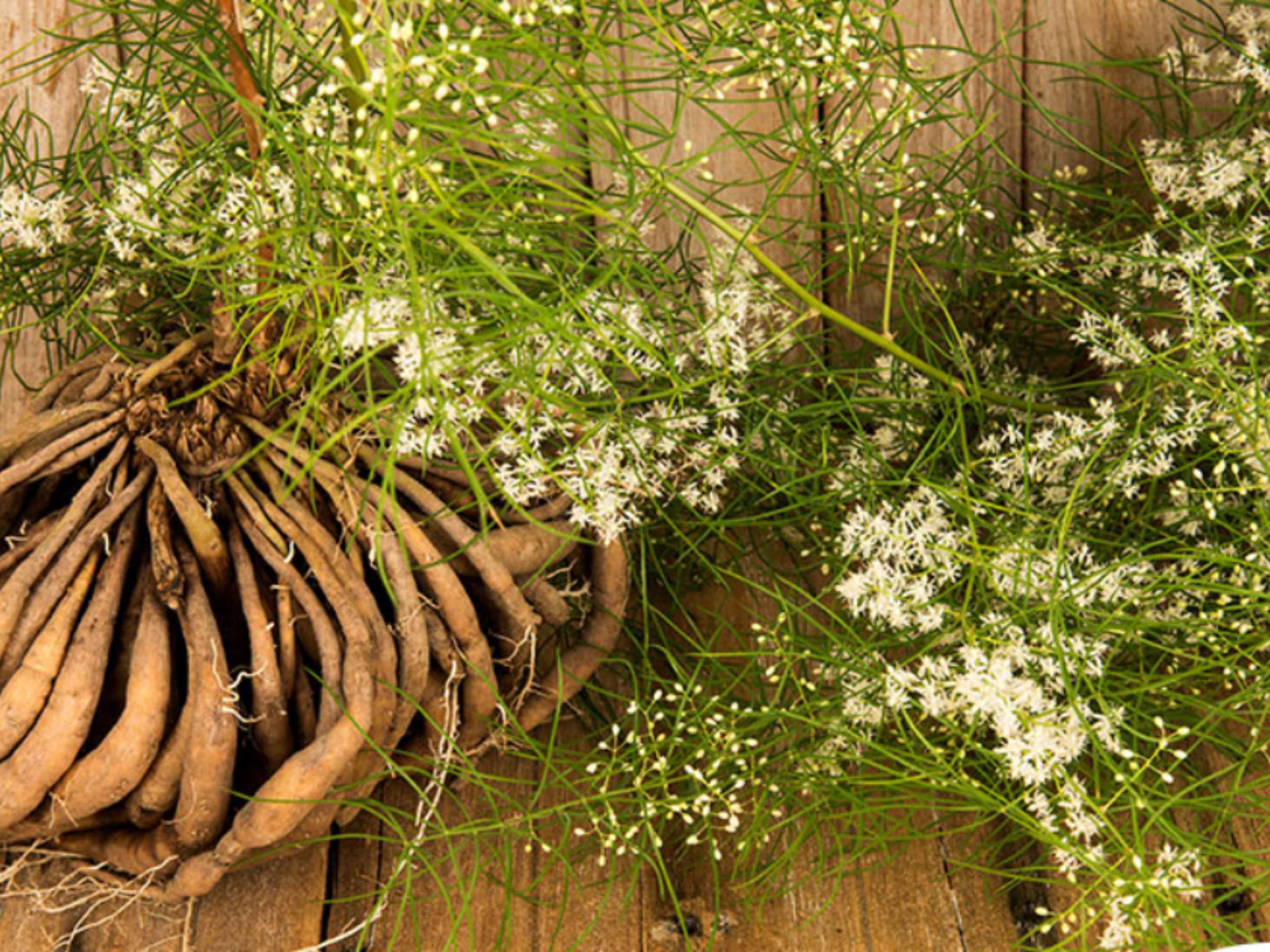Overview:
Known in Ayurveda as “the one who possesses a hundred husbands,” Shatavari (Asparagus racemosus) plays a powerful role in supporting women’s health and vitality. From hormonal balance to emotional resilience, this adaptogenic root offers holistic benefits across all stages of life.
As natural wellness gains global momentum, Shatavari continues to stand out as a trusted, time-tested ally for female well-being.
What Is Shatavari?
Shatavari is a climbing plant native to India and Southeast Asia. Herbalists primarily use its medicinal root, which holds the key to its therapeutic power.
Unlike synthetic solutions, Shatavari works gently by helping the body adapt to both physical and emotional stress.
In particular, it proves especially helpful during times of hormonal fluctuation — such as menstruation, postpartum, or menopause.
Top Benefits of Shatavari
Supports Hormonal Balance
Shatavari regulates estrogen levels, which in turn helps stabilize the menstrual cycle, support ovulation, and enhance mood.
Consequently, it promotes better hormonal harmony and emotional stability.
Enhances Fertility and Reproductive Health
Traditionally used to boost fertility, Shatavari nourishes reproductive organs, supports egg quality, and improves cervical mucus, which is essential for conception.
Moreover, it helps prepare the body for a healthy pregnancy.
Relieves PMS and Menstrual Discomfort
Because of its natural soothing and anti-inflammatory properties, Shatavari reduces cramps, eases bloating, and lessens irritability during menstruation.
Therefore, it provides a gentler alternative to painkillers and hormonal medications.
Supports Women During Menopause
Shatavari can also ease menopausal symptoms like hot flashes, night sweats, and mood swings.
For this reason, many women turn to it as a plant-based option during the menopausal transition.
Strengthens Immunity and Digestion
In addition to hormonal support, Shatavari boosts immune function and acts as a digestive tonic.
As a result, it helps maintain overall vitality and gut balance — two essential pillars of long-term health.
How to Take Shatavari
Shatavari comes in multiple convenient forms to suit different lifestyles:
Capsules or Tablets: Great for consistent, daily support
Powder: Easy to mix into milk, smoothies, or herbal blends
Liquid Extracts: Quick absorption and flexible dosage
Herbal Tea: Especially relaxing when combined with ashwagandha or licorice
Best practice: Always choose organic, ethically sourced Shatavari. Follow dosage instructions carefully, and consult your healthcare provider if you're pregnant, breastfeeding, or taking hormone-related medication.
Any Side Effects?
Shatavari is generally well-tolerated by most women.
However, if you have hormone-sensitive conditions (such as breast cancer or endometriosis), you should consult your doctor before starting it.
In rare cases, some people may experience mild bloating or digestive issues.
Overall, it remains one of the safest adaptogens available when used responsibly.
Final Thoughts
Whether you're facing PMS, preparing for pregnancy, or transitioning through menopause, Shatavari offers gentle yet powerful support.
By balancing hormones, calming the nervous system, and boosting energy, this ancient herb empowers women in a natural, sustainable way.
In short, it’s nature’s answer to modern-day hormonal challenges — helping women thrive, one cycle at a time.












